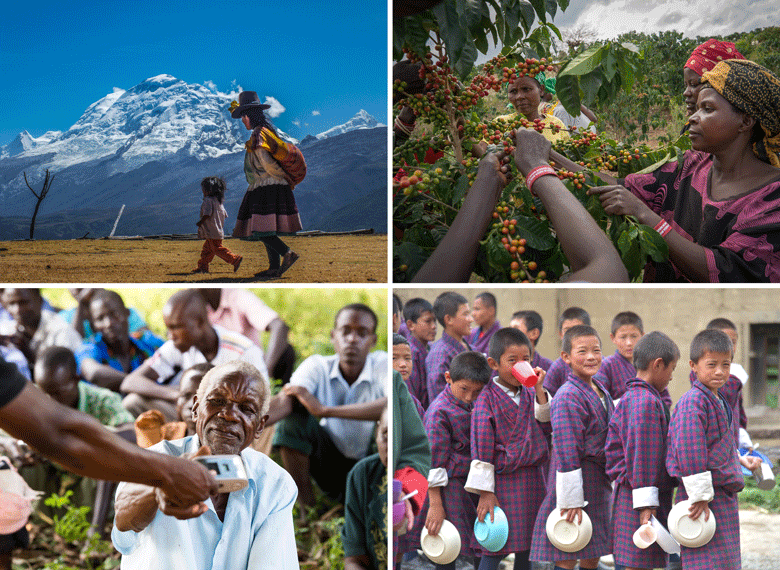

| By Shahbano Tirmizi, senior manager strategic initiatives at Expo 2020 Dubai |
When world leaders met at the annual United Nations General Assembly last month, the overriding message was that the global community must do more if we are to achieve the 2030 Global Agenda, the blueprint to secure the peace and prosperity of our people and planet.
Amid a raft of global challenges, it would be easy to look at the 17 Sustainable Development Goals (SDGs) and feel despondent about our ability to eradicate poverty, eliminate inequality and tackle climate change. These seem like lofty goals, admittedly, but by localising the agenda and by learning from the answers that already exist in our communities, schools and local government, it is possible to create a better future for us all.
This is where Expo 2020’s Global Best Practice programme, under the theme of ‘small steps, big leaps: simple solutions for sustainable impact’ comes in.
Simple yet effective
A feature of all World Expos, the Global Best Practice programme seeks out and spotlights simple, effective, local solutions – projects based on community efforts, indigenous knowledge and simple technology that are already up and running, demonstrating success and can be easily replicated or adapted for enhanced global impact.
We received 1,175 submissions from 141 countries, proof that with so many practical answers already out there, there is no need to always ‘reinvent the wheel’.
An international selection committee had the difficult task of narrowing those projects down to just 25 that will be showcased to the millions of visitors – as well as 192 nations, multilateral organisations, businesses and educational establishments – expected to attend Expo 2020 Dubai.
| Prestigious jury The 25 selected projects were chosen by a highly prestigious jury that included representatives from the Bureau International des Expositions (the governing body of World Expos), the University of Cambridge’s Institute for Sustainability Leadership, Bill and Melinda Gates Foundation, World Bank, UN-Habitat, UN-Water, UNDP, UNICEF, the Food and Agriculture Organisation of the United Nations, the International Renewable Energy Agency, Abu Dhabi Fund for Development and the Mastercard Centre for Inclusive Growth. |
The selected projects include an ingenious, low-cost, solar-powered water disinfection solution that helps prevent water-borne diseases; innovative flood mitigation in the form of ‘amphibious housing’; an initiative that helps traditional mountain communities survive and thrive; and an urban farming project that champions the grow-your-own food movement.
Expo 2020 will shine a light on these projects plus many ‘untold stories’ from individuals, communities, academia, businesses, international organisations and governments – that all tackle real world issues including eradicating hunger, enhancing health and well-being, boosting access to education, supporting employment opportunities and combatting climate change.
 For six months, the largest event ever held in the Arab world and the first World Expo in the Middle East, Africa and South Asia region will provide a platform for knowledge sharing, in line with its belief that best practices should not only be celebrated, but should also drive us forward as we seek to find creative solutions to the world’s most pressing challenges.
For six months, the largest event ever held in the Arab world and the first World Expo in the Middle East, Africa and South Asia region will provide a platform for knowledge sharing, in line with its belief that best practices should not only be celebrated, but should also drive us forward as we seek to find creative solutions to the world’s most pressing challenges.
This is ‘Connecting Minds, Creating the Future’ – the Expo 2020 theme – in action.
Shahbano Tirmizi (pictured), senior manager strategic initiatives at Expo 2020 Dubai, is responsible for the Global Best Practice Programme
Case study: The Mountain Partnership Products (MPP) InitiativeFunded by the Italian Development Cooperation and housed within the Food and Agriculture Organisation of the United Nations, the MPP Initiative supports smallholder farmers in mountain communities to create enterprises, enhance their marketing skills and boost their livelihoods by improving the value chains of products such as organic food, textiles and tourism services. Through labels that tell the story of each product, the initiative ensures transparency and trust between producers and consumers, meaning farmers are fairly compensated and agrobiodiversity and ancient techniques are preserved. So far, 10,000 farmers – of which 6,000 are women – have benefitted from a rise in selling prices of up to 25 per cent and an increase in production of up to 40 per cent in only two years. The initiative is already in place in eight developing countries – Bolivia, Kyrgyzstan, India, Nepal, Mongolia, Panama, the Philippines and Peru – and will soon launch in Guatemala, Lesotho, Papua New Guinea and Rwanda. Goods marketed under the MPP label include stingless bee honey from the Bolivian Andes and pink and purple rice cultivated by farmers in India’s Himalayas, as well as tea, coffee, pulses and textiles. |
To tell your untold story and to find out more about the selected projects, visit: www.expo2020dubai.com/en/programmes/best-practice-programme
Cover image courtesy of: (clockwise from left)
1: Mountain Partnership / FAO, FAO Edson Vandeira ©
2: Sustainable Growers Rwanda, Clay Enos ©
3: WFP Bhutan, World Food Programme, Ngyuen Duc-Hoang ©
4: Heloiz Austria ‘Wadi Soroti’, Annette Etges ©
You might also like...

Oman receives Madha industrial city tender prices
19 April 2024

Neom seeks to raise funds in $1.3bn sukuk sale
19 April 2024

Saudi firm advances Neutral Zone real estate plans
19 April 2024

Algeria signs oil deal with Swedish company
19 April 2024
A MEED Subscription...
Subscribe or upgrade your current MEED.com package to support your strategic planning with the MENA region’s best source of business information. Proceed to our online shop below to find out more about the features in each package.




